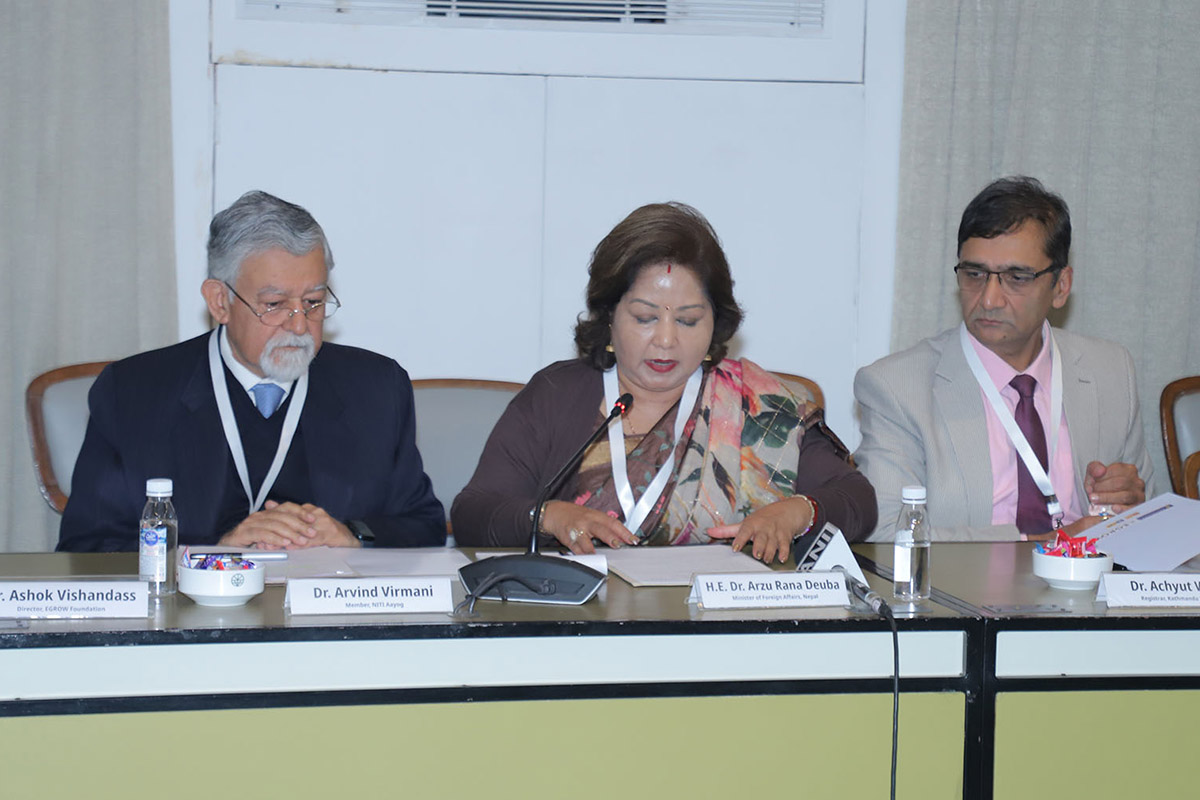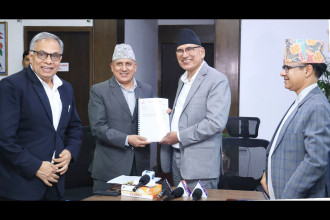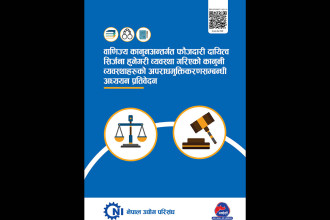
KATHMANDU: Minister for Foreign Affairs Arzu Rana Deuba has urged India to open additional air routes, highlighting the potential to boost tourism and strengthen bilateral connectivity.
Minister Rana made this statement in her address as chief guest at the Indo-Nepal Economic Conference jointly organised by Kathmandu University and India's Foundation for Economic Growth and Welfare (EGROW Foundation) in New Delhi, India, on Friday.
"We have opened two international airports at Lumbini and Pokhara, two of Nepal’s most beautiful, unique, and spiritual places. Since these airports were constructed at a high cost, we seek the support of our closest friend and neighbour to help make them fully operational. Thus, we seek the support of private Indian airline operators to start services to these two airports to enhance not only economic ties but also deepen people-to-people connections between our two countries."
She informed that the Government of Nepal has offered various incentives to airline companies for such services. The minister also discussed the greater potential of religious and cultural tourism in Nepal and India. "We can jointly promote our religious and cultural treasures as tourism destinations, which would contribute substantially to regional prosperity," she said, calling for both countries to effectively promote joint initiatives like the Ramayana Circuit and Buddhist Circuit to harness mutual benefits.
At the conference, Rana also urged Indian investors to invest in Nepal. Stating that India is the largest investor in Nepal, she urged the Indian private sector and entrepreneurs to take advantage of the vast investment potential and opportunities in Nepal. "Nepal has an investment-friendly environment as it has been awarded a ‘BB-’ rating by Fitch Ratings for its investment climate, positioning Nepal second behind India in South Asia. We have opened almost every sector of the economy to foreign investment. Recently, we have reformed policies and enacted many legislations to augment the investment climate."
She expressed Nepal's readiness to establish Bilateral Investment Agreements (BIAs) with as many prospective countries as possible to attract foreign investors. "Nepal offers an attractive incentive package in terms of corporate taxation, import duties, and export facilitation. We guarantee full repatriation of income from investment, and Nepali legislation prohibits the nationalisation of private enterprises. Nepal is now committed to policy stabilisation to encourage FDI and private sector engagement."
She highlighted recent advancements in cross-border infrastructure, including rail links, petroleum pipelines, power transmission lines, roads, motorable bridges, and other infrastructure through formal economic cooperation.
The Foreign Minister stressed the need for removing non-tariff barriers and facilitating trade at the border, concluding mutual recognition agreements, promoting regional value chains and intra-industry trade, upgrading trade-related infrastructure, and India’s support in strengthening productive capacity to bridge Nepal's trade deficit with India.
On cross-border connectivity trade, she noted the historic agreement between Indian Prime Minister Narendra Modi and then Prime Minister of Nepal Sher Bahadur Deuba in April 2022, which envisioned the export of power equivalent to 10,000MW from Nepal to India within a time frame of 10 years. Other agreements include the joint development of power generation projects in Nepal, the development of cross-border transmission infrastructure, bi-directional power trade with appropriate access to electricity markets in both countries based on mutual benefits, market demand and applicable domestic regulations of each country, coordinated operation of the national grids, and institutional cooperation in sharing the latest operational information, technology, and know-how.
"This agreement serves as a strong reason for hydropower developers to view Nepal’s energy market as one worth investing in today. Moreover, the very recent signing of a historic tripartite power sales agreement has enabled Nepal to sell 40 MW of power to Bangladesh via the Indian grid. We highly appreciate the leadership in India creating the environment for this breakthrough."
Pointing out the deep bond between Nepal and India, rooted in broad cultural unity and economic complementarities, she valued India's support to Nepal in education, health, infrastructure development, institutional building, and industrialisation, which she said has further strengthened the relations between the two countries. Nepal has institutionalised peace and democratic governance through historic political transformation, she stated, emphasising that its priority now is sustainable peace and prosperity through rapid socio-economic development.
She also sought continued support and goodwill from the international community, particularly from closest neighbours, in Nepal's aspiration to graduate from its LDC status by 2026 and achieve the sustainable development goals (SDGs) by 2030. She stressed the need to further strengthen regional and sub-regional platforms such as BIMSTEC, BBIN, and SAARC to forge economic integration and complement bilateral economic engagements.
Urging India to prioritise Nepal under its 'Neighbourhood First' policy, Minister Rana said that strengthening economic relations based on common interests and prosperity would be in the best interests of both countries.
By RSS



-1745233111.jpg)


